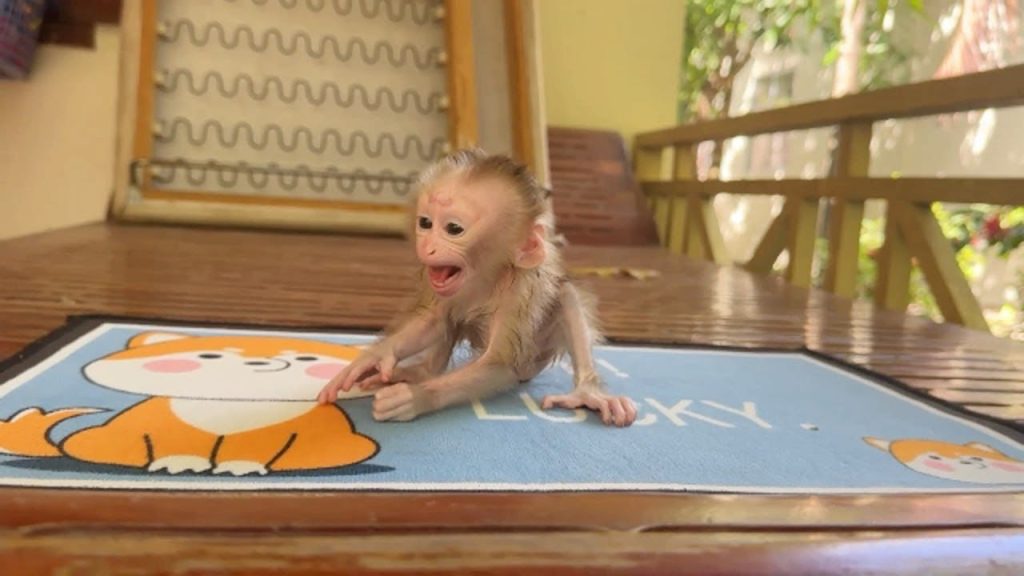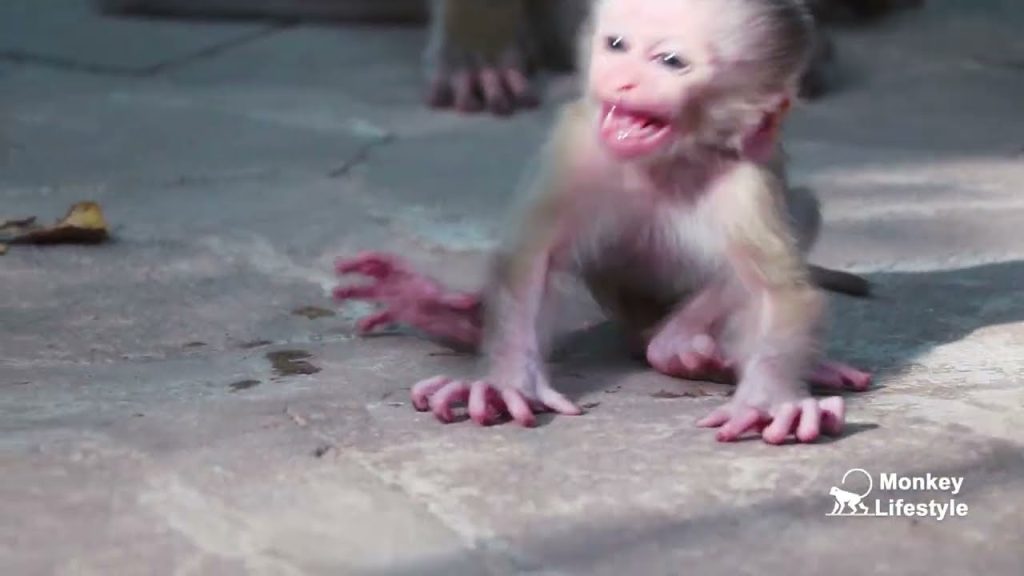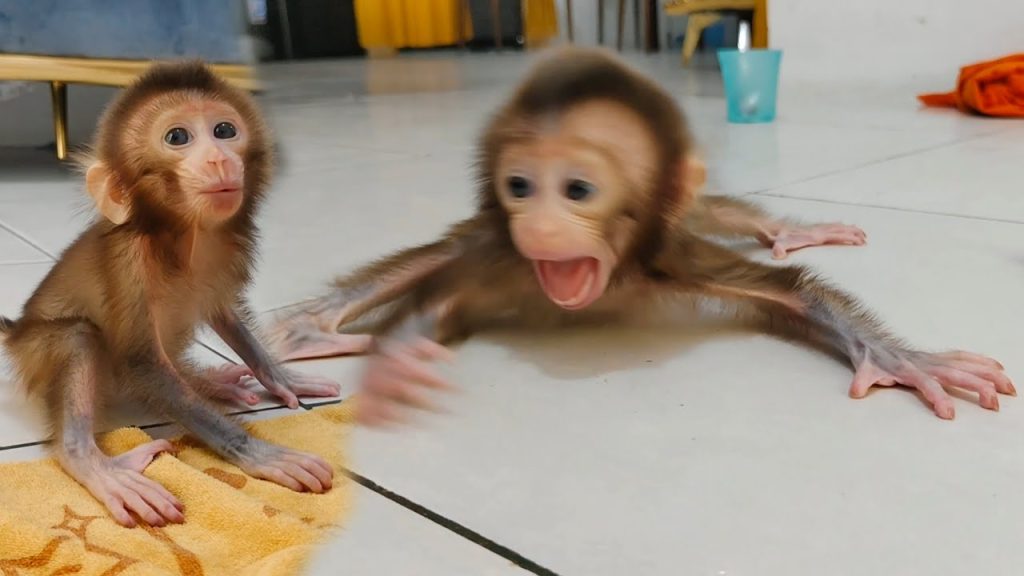
In the gentle morning light of the rescue center, a tiny newborn monkey, barely the size of a caretaker’s hand, is wrapped in a soft blanket. His eyes are still cloudy with the haze of new life, and every sound seems to startle him. It’s feeding time—a moment that should be peaceful—but for newborn monkeys like him, it can be dangerous.
As the warm milk flows from the bottle, his small lips latch eagerly. He drinks hungrily, desperate to fill his empty belly. But suddenly, his little body jerks. A cough escapes, then another. Milk bubbles from his tiny nostrils, and he squeaks in panic. This is choking—a frightening struggle caused by his underdeveloped ability to coordinate swallowing and breathing.
Newborn monkeys often face this risk in their first weeks. Their bodies are still learning. The muscles in their throat are weak, and if the milk comes too quickly or they’re lying at the wrong angle, it can slip into their airway. Even a moment’s distraction during feeding can turn into a battle for breath.
The caretaker quickly lifts him upright, gently patting his tiny back. Slowly, the coughing stops. His frightened eyes soften, and a small, shaky breath escapes. The blanket wraps around him again, warmth and safety returning.
Moments later, the bottle returns, but this time the flow is slower, the position more careful. He drinks in little pauses, resting between each swallow. And when his belly is full, he curls into the caretaker’s palm, finally drifting into sleep.
For newborn monkeys, survival is not just about food—it’s about patience, gentle care, and the love of those who understand their fragility. Each feeding is a lesson in trust… and in hope for a healthy tomorrow.


